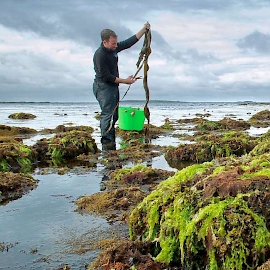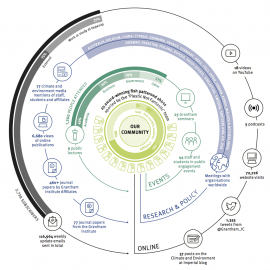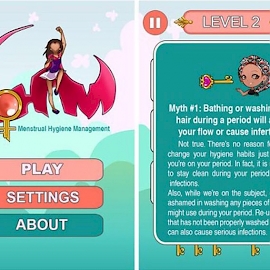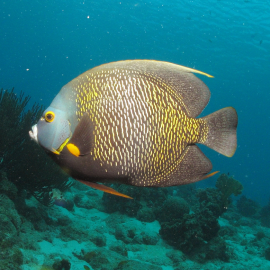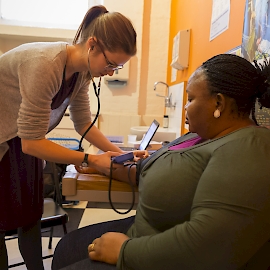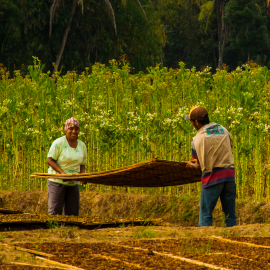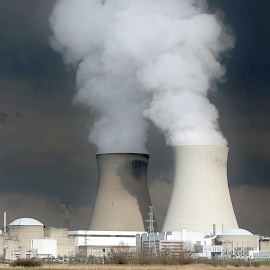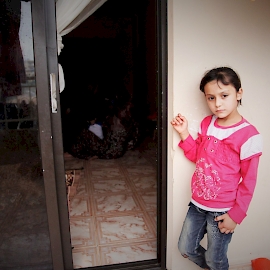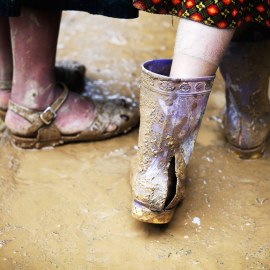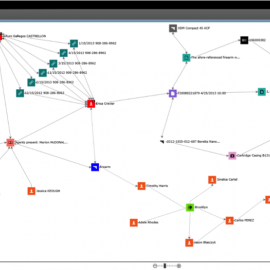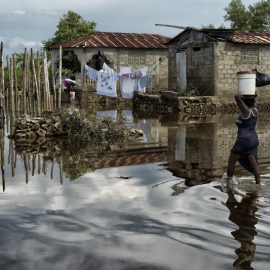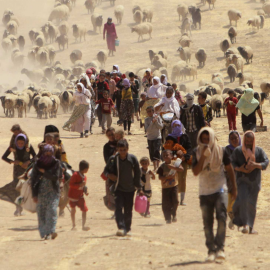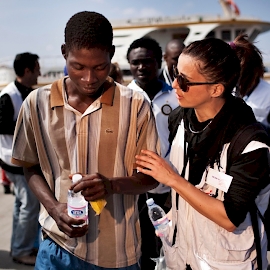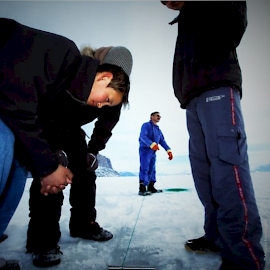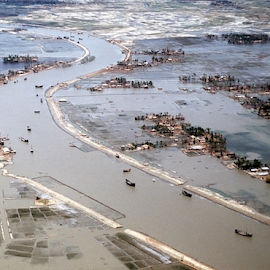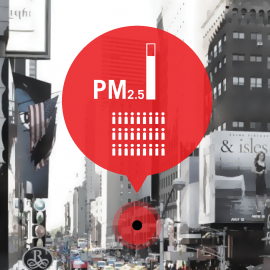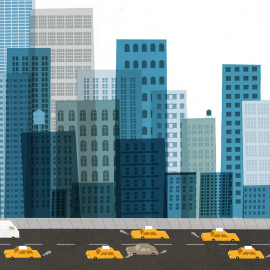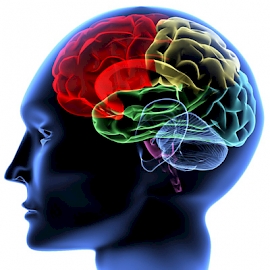An Evolutionary Arms Race
Around 700,000 lives are lost worldwide due to antimicrobial-resistant infections every year. Without viable antibiotic treatment options we are likely to return to a relative dark age of medicine – a time when common infections or injuries could kill, and common surgeries and immunosuppressive therapies may become unfeasible.
10 June 2017
Fish Food
Seaweeds and microalgae, containing up to 47% dry weight protein, provide a viable protein source. Could seaweed-based foods feed future generations?
15 May 2017
The Role of Interdisciplinary Institutes in Knowledge Diffusion
Universities are sitting on a vast swathe of untapped knowledge and by presenting this information in different formats to new audiences it is possible to forge more and various effective conduits to the non-academic world.
8 May 2017
The logic of synthetic biology: turning cells into computers
For years scientists have been studying E. coli as historians would an ancient tome. Biologists, biochemists, and geneticists have dissected, poked, and prodded E. coli until it gave up its secrets: the basic principles of cellular life. Synthetic biologists, on the other hand, look at E. coli and think to themselves: “let’s make a computer”.
9 April 2017
Bridging science and government
As science and technology have come to play critical roles in addressing (and in some cases precipitating) diverse issues in contemporary society, demand for scientific advice has soared.
27 March 2017
A Gaming Revolution for International Development
There are more than one billion people living under $1.25 a day and almost the same number playing at least one hour of video games worldwide. So, how can the popularity of games be harnessed for positive social change?
21 March 2017
Fish-like flow sensing on underwater vehicles
Natural biological sensors, designed, tested, and adapted via evolutionary processes, typically exhibit sensing performances that far exceed those currently achieved by human-engineered sensors. Bioinspired and biomimetic flow velocity sensors, inspired by the mechanosensory lateral-line system found in blind cavefish, can be used for a wide range of applications including underwater robots.
5 February 2017
Moving the borders into healthcare
A political drive in the UK is leading to undermining of access to primary and emergency care for many vulnerable groups despite evidence of potential harm to individual and public health. Bringing little if any economic benefit, the policy to introduce charges for primary care and A&E for visitors and migrants is progressing at pace while critics of the policy are side-lined.
11 October 2016
Does research guide tobacco control policy in Europe?
Despite the enforcement of the revised Tobacco Products Directive, aimed at tightening tobacco control policies throughout the EU, the orchestrated attempts of the tobacco industry to influence the outcome of the vote has raised concerns that research may have less importance in the shaping of public health policies.
3 October 2016
From research leader to technology customer
In the face of climate change, and dwindling, insecure access to fossil fuels, nuclear power is expected to play a key role in the UK's energy strategy over the coming decades. But does it have the skills and capabilities to sustain the development of the nuclear sector after decades of neglect from government and industry?
24 June 2016
Brexit: the UK in the departure lounge
If Brexit happens, the UK will not be in a strong position to face global challenges. Lagging in trade openness and innovation, and facing a divergent regulatory environment and declining foreign investment, the UK will struggle to re-negotiate trade deals with global partners. Conversely, as the influence of the EU moves east, increased political coherence could benefit the Euro and EU financial sector.
10 June 2016
Solving an age-old riddle: Can inertial confinement finally deliver fusion?
With an ever-increasing energy demand, the world is in need of a powerful and inexhaustible energy source. Nuclear fusion, presenting the additional advantage of being a clean source of energy, is the ideal candidate. Inertial confinement could solve the remaining challenge of producing high enough temperatures and pressures to hold the fusion material together.
1 June 2016
The Digital Revolution: Why do you Google?
While we seem to be enchanted by the idea, there really is no such thing as an unbiased search result.
14 May 2016
Why Should We Go Nuclear?
Nuclear energy is considered controversial due to threats from large accidents, terrorist activity and nuclear waste storage. But nuclear power is important role to combat climate change and move society away from fossil fuels.
11 May 2016
Keeping the Lights On
The possibility of the UK exiting the European Union, or Brexit, could have a significant impact on national energy policy and infrastructure. The EU referendum could define whether the UK will meet its Paris COP21 targets, and what energy resources are utilised.
22 April 2016
Reading the Path of Antibiotic Decline in Bacterial DNA
DNA sequencing is an exciting modern technology, that has vastly improved our ability to treat infections. However antibiotic resistance is a growing problem and DNA sequencing is revealing the challenge we face as bacteria are rapidly evolving resistance to antibiotics.
18 April 2016
In the age of terror, are medical ethics a casualty of war?
Since the attacks of September 11, 2001, physicians serving under the direction of United States defense and intelligence agencies have at times been directed to act in ways that explicitly violate established medical ethics. The question is, is it ever acceptable for national security interests to trump ethical obligations?
6 April 2016
Are Pro-Government Political Militias Evidence of a Strong State?
The growth of pro-government political militias and unidentified armed groups has traditionally been associated with weak state capacity however, new research suggests this may be a method of institutional management and can be seen as evidence of a strong state rather than a fragile one.
13 March 2016
Providing Safe Havens for Academics at Risk
"Where higher education is destroyed and a country’s academics and scientists are killed or scattered, its intellectual capital will be lost and its devastated society will be much harder to re-build".
17 February 2016
Videogames and the Future of Ideological Warfare
Videogames have emerged as one of the preeminent domains of ideological warfare, forming part of the media strategies of both state military forces and violent non-state actors, including Islamic State. Dr Marcus Schulzke emphasizes the need to understand the role of videogames during times of conflict and their ability to control the narratives surrounding wars.
7 February 2016
Measuring Global Success
Much debate surrounds the choice of indicator used to determine economic performance and stage of development for governments, businesses and citizens.
24 January 2016
Prosecuting Sexual Violence in Conflict
In light of recent news including the coordinated sexual assaults on women in Cologne, and a spike in attacks against Syrian and Iraqi women, Dr Hope Ferdowsian co-authors a timely piece reflecting on sexual violence crimes during times of conflict. Could justice be better served if clinicians extended their role and were required to provide forensic medical evidence in Courts of Law?
20 January 2016
Anthropocene: Rewriting Our Story
From the Holocene epoch, a period where the planet was largely governed by the forces of nature, mankind entered the Anthropocene, a less predictable epoch driven by human activities. In this new era, humans are responsible for Earth’s life support system including core components such as biodiversity, the water cycle, and the ozone layer. With many systems flashing red, just recently mankind has started to step up to this challenge.
2 January 2016
Behavioural insights in the age of austerity
The science of behavioural insights is increasingly seen as an essential component of the toolkit of the savvy policy-maker. However, advances in economic, social, cultural, and evolutionary psychology remind us to keep society, as well as the individual, in focus when looking for the root causes of social problems
17 December 2015
Border control fights back with cyber evidence
Border control agents require the eyes of a hawk, a good understanding of human psychology and endless patience. But even with these attributes, border control is still a gamble. How do you know you’ve stopped the right person?
8 December 2015
Solar Radiation Management Can Only Work if it Works for the Poor
A promising technology that aims to reflect a small percentage of sunlight back into space called Solar Radiation Management (SRM) could complement mitigation and adaptation in the fight against climate change.
1 December 2015
Why carbon pricing will not succeed
Is climate modelling for carbon pricing based on theoretical assumptions that are unlikely to hold in the real world? The benefits of carbon pricing are highly uncertain, and hence it is likely not the most effective way to tackle greenhouse gas emissions.
26 November 2015
Fragile States
The greatest migration since World War II is under way as refugees flow from Syria to both surrounding countries and Europe. Here we examine the role of climate change with regard to state fragility and migration, and propose three guiding principals for governments to follow when faced with complex and uncertain climate-related threats.
24 November 2015
Climate Change, Health, and Migration
In 2003, one million people fled Beijing during a SARS outbreak. In 2009, tens of thousands fled Zimbabwe during an outbreak of cholera. Anna Brach and Khalid Koser discuss how health crises arising from climate change are a significant driver of mass migration.
20 October 2015
Is Guilt a Good Motivator for Pro-social Behaviour?
Automatic enrolment to pro-social programmes is popular but unlikely to always be the optimal policy. New behavioural economics research suggests that whether a policy breeds guilt or resentment helps determine if it will be effective or not.
9 October 2015
Living above the Arctic Circle
Climate change affects everyone. For Arctic communities, the unpredictable nature of the changes is having a profound impact on health and entire livelihoods. The Arctic people know they’ll need to adapt to a rapidly changing landscape, one in which dependency on the seasons can no longer be relied upon.
30 September 2015
The debt humanity owes the environment
The large extent of our debt with Nature is likely to have important repercussions on our health, including unforeseen impacts such as a rise in hypertension due to increased salinity of rivers and seas. Can synergies or 'co-benefits' arising from efforts to tackle climate change issues such as energy use and transportation also mitigate some of it's health effects?
22 September 2015
Medical Travel & Trade: Equitable Access or Economic Grab?
As countries race to dominate the medical tourism sector and attract the wealthiest patients from around world, what damage is being caused to the health of their own citizens?
30 June 2015
Coping with Air Pollution in an Age of Urbanisation
In order to tackle exposure to air pollution emissions in urban environments, policies should aim to keep people away from the most polluted areas rather than focusing exclusively on containing the root of the pollution itself.
24 June 2015
Global Risk: the Wildfire in the Commons
What distinguishes many of today's problems from those faced by former generations? The interconnected nature of global issues like emerging bio-technologies and climate change raises the possibility of 'wildfire risks', where the actions of one can have a great impact on many.
24 June 2015
Bigger, Denser, Faster
While cities exist in a mesmerizing diversity of size and form, it is possible to detect subtle patterns that are common to all cities in the form of both increasing returns to scale and economies of scale. Driving these dynamics, what matters for a city is a high density of social connections over time and space, facilitated by built-up space and everyday mobility patterns.
23 June 2015
Imagine a future dominated by brain emulation robots
History took us from the age of foraging to the age of farming, will brain emulation technology now take us from the industrial era to the age of the "em" economy?
22 June 2015
Marine Energy: Somewhere Beyond The Sea?
Marine energy has the potential to play a key role in the UK's energy mix in the coming decades, benefited by both its geography and its historical expertise. It is now critical that the necessary steps are taken to enable the technology to progress to the commercially viable stage, and realise its full potential.
22 June 2015

